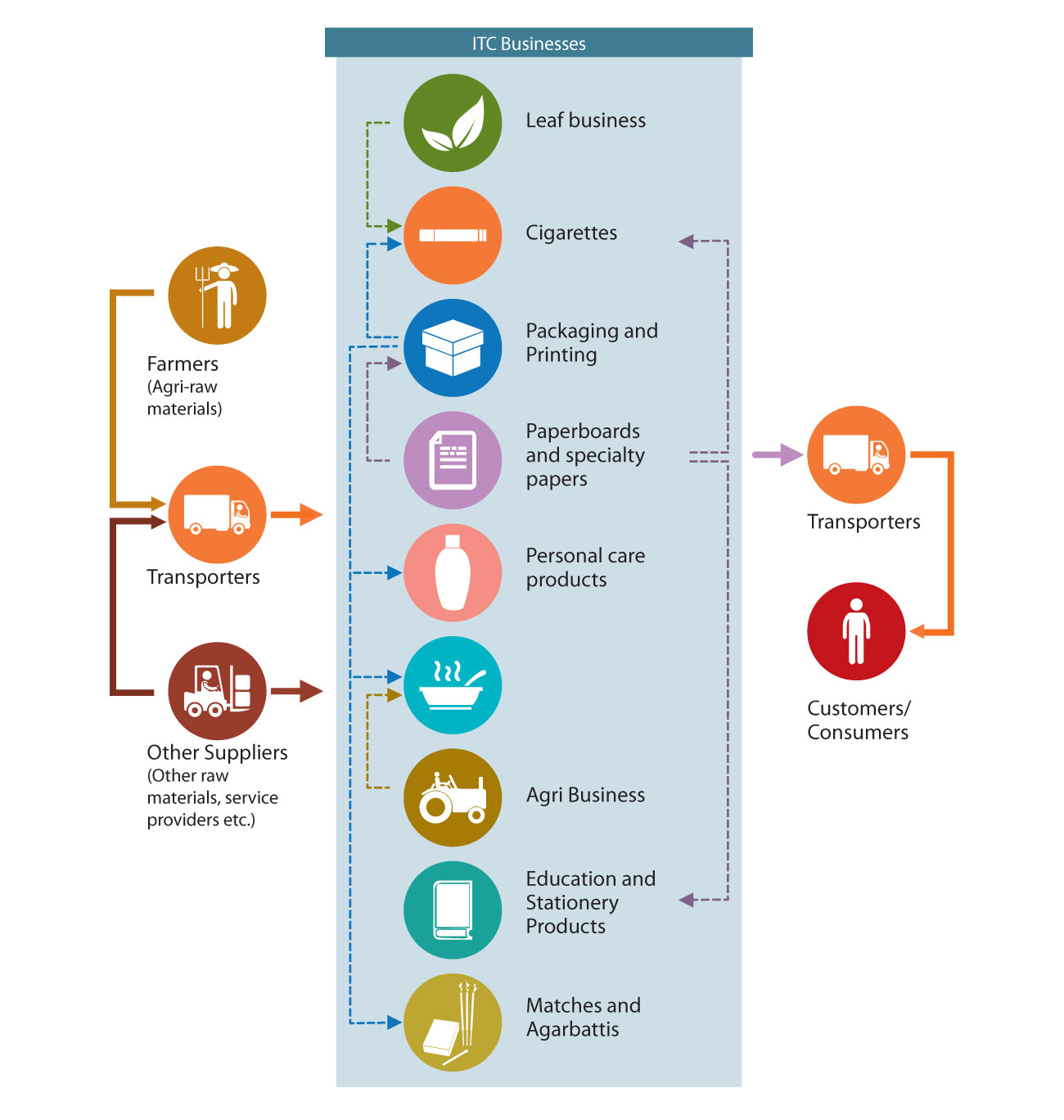-
Category: Environment

ITC's vision to serve larger national priorities is realised by the strategic approach of embedding sustainability in its core business models. Innovative strategies have therefore been designed and implemented to create sustainable value chains linked to its businesses. Dependent as the organisation is, on agricultural resources, these value chains encompass small and marginal farmers, who constitute some of the most disadvantaged sections of Indian society. The vitality of ITC's winning brands drive the competitiveness of these value chains. At the same time, these linkages provide unique sources of competitive advantage to the Company's businesses. ITC recognises that with an expanding and diversified portfolio of businesses, the actualisation of its vision of sustainable development has to necessarily take into account the environmental and social impact within the supply chain. It is therefore important to extend ITC's Triple Bottom Line approach along the supply chain. This will ensure long-term competitiveness through a balance between creation of long term social & environmental value and the economic viability of the businesses.
To formalise the sustainable procurement process, ITC has put in place Board approved Policies which address the issues of labour practices, human rights, bribery, corruption, occupational health, safety and environment in the supply chain. These policies, meant for Third Party Manufactures (TPM), service providers including transporters, suppliers of agricultural & non-agricultural materials and capital goods, franchisees, dealers and distributors collectively referred to as supply chain partners, define the structure around which efforts are directed for continually improving the sustainability performance along the supply chain. These policies are actualised through a 'Code of Conduct for Vendors and Service providers' that details out specific requirements related to the aspects addressed in the policies. Through acceptance of this code by the supply chain partners, ITC seeks their commitment to comply with all applicable laws, respect human rights and contribute to environmental conservation.
Each ITC Business has developed road maps for phase-wise implementation of the sustainability policies and inclusion of their supply chain within their sustainability management system in a progressive manner. Progress of implementation of these road maps is reviewed by the Sustainability Compliance Review Committee.
A simplified representation of the material flow in ITC's businesses is given below:

*The above diagram includes material flow only and does not include Lifestyle Retailing Business, Hotels business and ITC Infotech
![]() : Indicates Material flow within ITC
: Indicates Material flow within ITC
As evident from the above representation of the generic material flow for ITC businesses, the supply chains of most of ITC's businesses are vertically integrated. Farmers are the key suppliers for the majority of our businesses which are dependent on agri-commodities, and therefore constitute an integral part of ITC's supply chain. Accordingly the Company has focussed on enhancing the sustainability of its agri-supply chain, details of which are mentioned below.